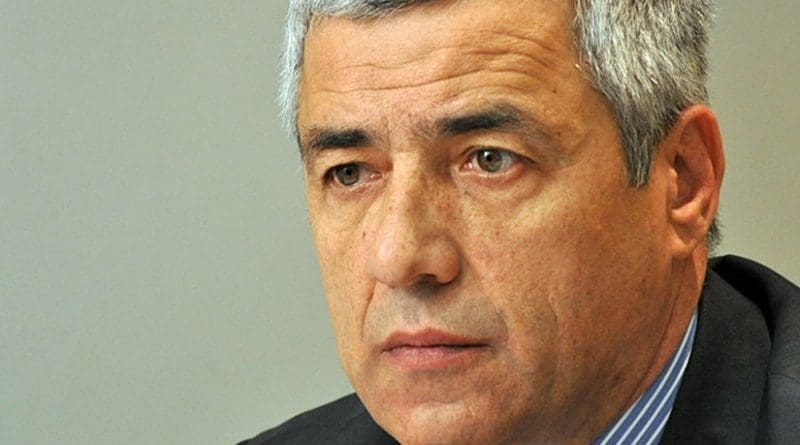Kosovo: Can Europe’s Youngest Country Turn Itself Around? – Analysis
By Tomas Liutkus*
As Kosovo gets ready to celebrate a decade’s worth of independence this February, signs don’t suggest that it has much to cheer about. GDP per capita is the lowest in the region at $3,660 per person, 57.7% of under-25s are unemployed, and territorial disputes with its neighbours continue unabated.
These woes were further compounded on January 16th, when a prominent Kosovo Serb politician, Oliver Ivanović, was assassinated outside his party’s office in the divided city of Mitrovica. But while the tragedy threatens to shatter the fragile peace between Kosovo and Serbia, it could also, paradoxically, be an opportunity for the pair to bury the hatchet.
In broad daylight
An ethnic Serb, Ivanović was proficient in Albanian and committed to promoting coexistence between the two nations. He frequently failed to toe the line on certain loaded issues, causing him to quarrel with Serbian politicians, his fellow Kosovo Serb lawmakers, and Pristina. Most importantly, he did not share his nation’s belief that northern Kosovo should be reclaimed by Serbia – a stance which caused some Serbs to label him a traitor.
“If you were looking for someone who could build bridges, it would be him, which is why neither the government in Pristina nor the government in Belgrade liked him,” said Dusan Reljic, a specialist from the German Institute for International Affairs and Security (SWP).
Since Ivanović’s death, both Kosovar and Serb politicians have traded the blame over who was responsible, with no definitive proof over the identity of his assailants.
A spanner in the political works
Not surprisingly, the murder has indefinitely paused EU-mediated talks between Serbia and Kosovo aimed at normalizing bilateral relations – talks that had been scheduled to recommence on the same day that Ivanović was shot. Political tensions had already been running high following top Kosovar politicians’ efforts to derail the Specialist Chambers, a court tasked with prosecuting Kosovo Liberation Army (KLA) members who were responsible for violence against Serbs, other ethnic groups, and political adversaries during and after the 1998-1999 war.
Serbia sees Kosovo’s attempt to suspend the court as an outright betrayal and a shirking of responsibility, while Kosovo is disgruntled that the only criminals on trial will be those from the KLA. The U-turn has earned a swift rebuke from both Brussels and Washington, with the head of the EU’s office in Kosovo saying that bilateral relations will suffer if the court collapses.
And therein lies the rub: if Kosovo and Serbia want to bring the perpetrators behind Ivanović’s murder to justice, the two bickering governments will have to come back to the negotiating table. Indeed, the lack of collaboration has been a major cause behind both sides’ failure to tackle rampant lawlessness within their borders. As things stand now, Kosovo is not a member of Interpol or Europol, and Serbia refuses to cooperate when Kosovar criminals wanted by Interpol are hiding within their borders. As a result, over the years, a number of convicted criminals have managed to evade punishment – often by simply crossing the border.
For instance, many lawbreakers have managed to avoid imprisonment simply by leaving the country and waiting for the statute of limitations to run out.
Criminals from Serbia, too, have a history of evading jail time by hiding in Kosovo’s northern, mainly ethnic Serb region, because Belgrade does not tend to issue extradition requests due to its refusal to recognize Kosovo internationally. In just one example, the Interpol arrest warrant holder Predrag Vulicevic, a Serbian citizen, was arrested in 2015 in Mitrovica but later released since Belgrade never made an extradition request.
The stalemate between Pristina and Belgrade has thus culminated in the creation of an essentially lawless border zone, fueled by the gangs operating in the Balkans. Were Serbia and Kosovo to find an agreement on criminal cooperation, it could very well serve as a guiding light for the countries in the region, themselves hotbeds of organized crime.
For example, Montenegro is a particularly egregious case. According to a report from Serbia’s Crime and Corruption Reporting Network, over the past five years, law enforcement authorities in Serbia and Montenegro have only solved four out of 83 likely gang-related murders. According to the data, these murders have been increasing since 2012 and investigations into them have been painfully slow. As crime expert Dobrivoje Radovanovic explained, most of the murders have not been solved because that organized crime interests are woven into the very fabric of state security and judicial institutions.
Indeed, former Prime Minister Milo Ðukanović – who wants to return to power following elections this April – has a long history of nurturing illegal activity in the country. Among other charges laid at his door are a highly-profitable, highly-illegal cigarette smuggling operation, money laundering through the privatization of a state bank and rampant nepotism with the country’s coffers.
Of course, the dire state of rule of law in the region is no reason for Kosovo and Serbia to give up on efforts to combat the crime flowing across and within their borders. Rather, they should use the tragedy of Ivanović’s death as a springboard to reconcile their differences, commit to combatting lawlessness, and improve cross-border collaboration. The EU, in particular, has a critical role to play in prodding both sides to bring Ivanovic’s killers to justice and end the stalemate. If successful, they will not only do justice to the memory of a politician committed to bridging divides. They will also make Kosovo’s next anniversary something to truly celebrate.
Source: This article was published by Modern Diplomacy.

